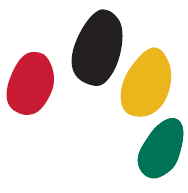Stateless Try to Make Their Home Their Country in Ivory Coast

By Misha Hussain in TENKODOUGOU |
Ivory Coast | 9 Nov 2014
Ivory Coast has some 700,000 stateless people within its borders, one of the biggest stateless populations in the world. But after two civil wars in the space of a decade, the country has taken steps to integrate marginalized communities to tackle historical injustices and avoid further conflict running up to the elections in 2015.
Three years after the civil war, patriotic sentiment is running high on Independence Day in Ivory Coast. But in seven, small hamlets hidden in the lush green cocoa fields of the central belt, the villagers are more adamant than most to prove their loyalty to the nation.
Their ancestral roots lie in Burkina Faso, and people in this community had until recently faced discrimination for almost 80 years. Locals beat them and accused them of being foreigners, police restricted their movement and courts denied them justice.
For decades, they cried: “but we’re Ivorian! We may have kept our village and family names from Burkina Faso, our traditional dances, our language, but we were born in Ivory Coast, we live here and we are passionately Ivorian,” said Oumarou Welgo, 50, hand on heart, ready to burst into the national anthem to prove his point.
Read more in Newsweek
